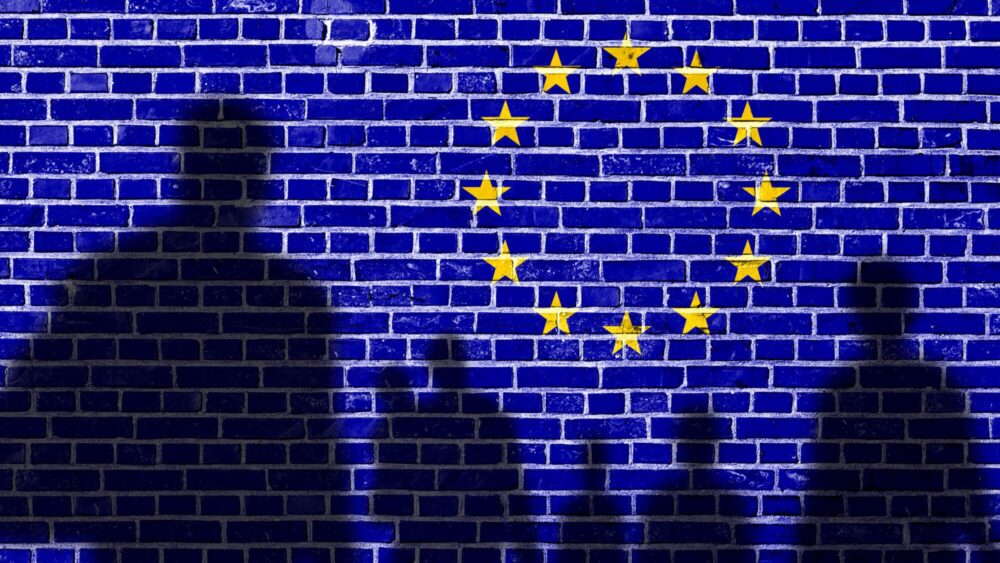
Photo: Shutterstock
“We need to accept that immigration policy is national policy. It cannot be one-size-fits-all for all twenty-seven member states. We need to get national borders back to be able to have the immigration policies that each of our member states wants,” said Patricia Chagnon, Member of the European Parliament for the French conservative, sovereigntist party Rassemblement National, at a forum organised by MCC Brussels on Wednesday evening, October 11th.
The event, entitled ‘Migration: Why Borders Matter,’ discussed the recent wave of migrants arriving on the Italian island of Lampedusa at a rate not seen since the beginning of the European migration crisis in 2015-16. The panel also analysed the EU’s upcoming migration pact, vetoed by Hungary and Poland, which would see the introduction of ‘mandatory solidarity,’ forcing member states to accept migrants under a quota system or pay fines. Another example of EU institutions infringing on member states’ sovereignty is the recently adopted Schengen reform proposal, backed by the European Parliament’s left-wing majority. This measure explicitly aims to ensure member states cannot reinstate internal borders within the Schengen Area except “as a last resort.”
“The migration pact is saying to all European nation states that we should have the same rules and the same objectives with regards to immigration. That is wrong,” Patricia Chagnon stressed. “Today the EU has become an empire, a neoliberal, postnational organisation built around the no-border concept, run by powerful EU institutions, and decisions are made by a centralised authority: the European Commission,” the MEP complained, emphasising that the EU is transferring more and more national competences to EU level, imposing supranational courts over national jurisdictions.
European societies that do not take borders seriously are also a moral problem, said Frank Furedi, Executive Director of MCC Brussels, explaining that in the Western world “there is not a single important civilisational value or boundary that remains intact.” He mentioned the boundary between children and adults, men and women, the private and the public spheres, and those between national boundaries. “Most important of all, when we begin to give up boundaries, we also give up the distinction between right and wrong, clear moral distinctions,” professor Furedi emphasised, saying how important a role moral distinctions play in education.
Alluding to the massacre of Israeli citizens by the Palestinian Hamas terrorist group, and people in Western Europe celebrating the barbaric attack, he said, “If you erode moral distinctions, you cannot make a moral distinction about the evil that is being perpetrated in Israel.” Furedi noted that the responsibility lies with the elites of Western European societies who “have refused to stand up for the cultural values that they themselves were socialised into.” If there is no French or British way of life to assimilate into, then “migration leads inevitably into moral and social polarisation.”
In his speech, Calum T. M. Nicholson, Head of Research at MCC’s Climate Policy Institute argued that migration is not really a technocratic or even an ideological-political issue, but an anthropological issue. As he explained, a demand for more migration is a symptom of a globalised world, a capitalist system, because there is a strong correlation between migration and the labour market, while demographic growth correlates closely with economic growth. Politicians cannot stay in power without a growing economy, so there are currently two approaches to maintain the imperative of growth: Hungary’s approach, encouraging families to have children through tax cuts, or seeking immigration, thereby encouraging more and more people to come in order to satisfy the labour market.
